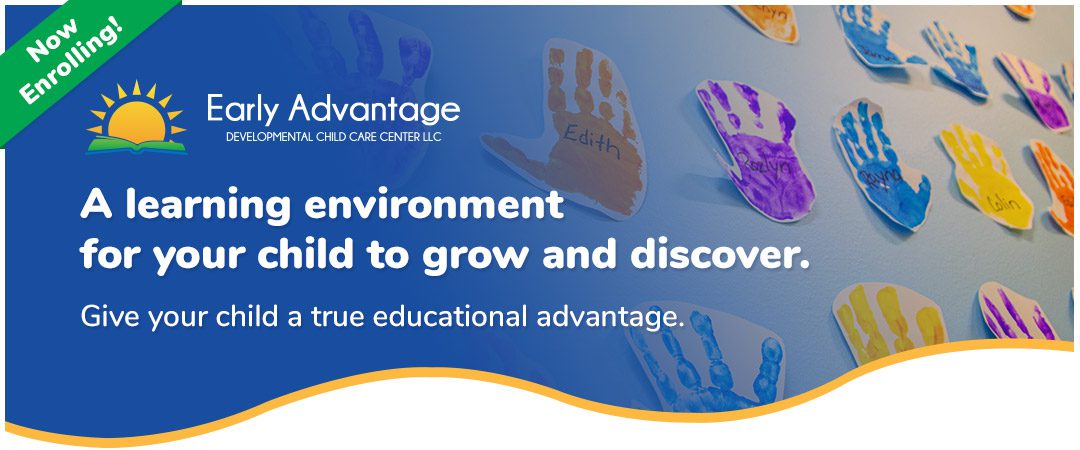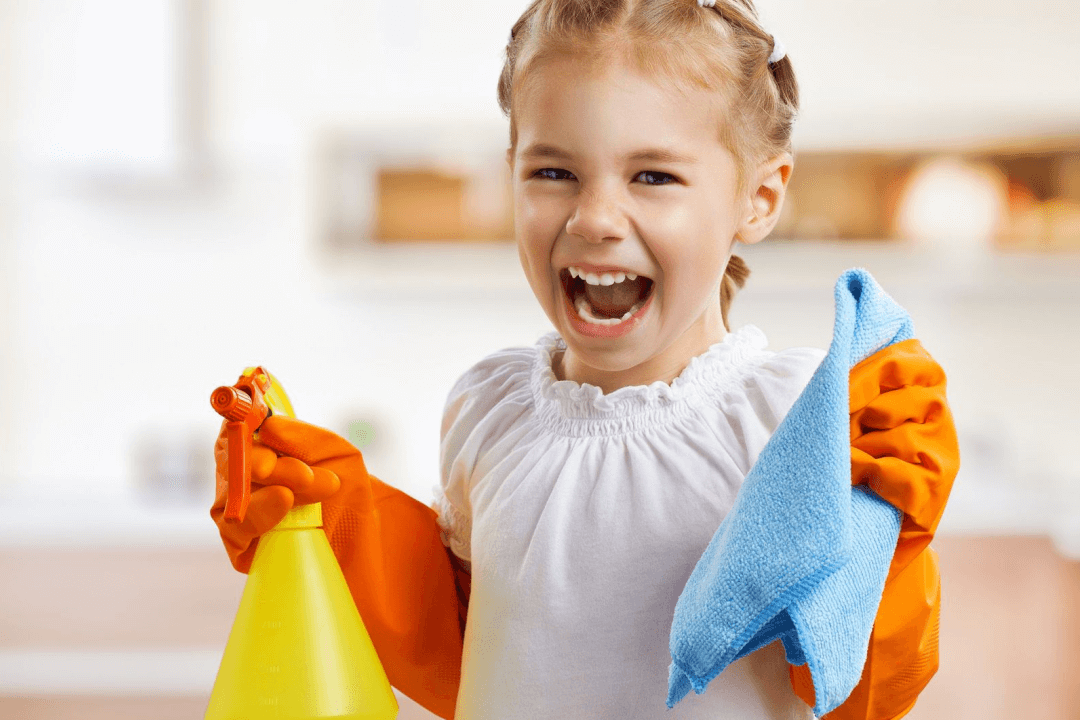As children grow physically and intellectually, they also grow socially. One wonderful aspect of the social growth of children is seeing how they grow in their understanding of their duties and responsibilities.
Rewarding or complimenting a child who completes a task out of a sense of contribution is a source of great joy.
Our 9 Tips for Teaching Kids to Take Responsibility
Teaching children to take responsibility for their actions is an essential lesson for their overall development. At Early Advantage, we absolutely love watching children grow in their ability to understand what responsibility is and begin to grow in their contributions at home and at daycare.
Here are nine practical tips to help teach kids responsibility.
1. Create Opportunities for Responsible Behavior at Home
We encourage parents to create an environment that promotes a child’s responsible behavior at home.
Simple tasks, like putting away toys after playtime or helping with chores teaches kids to take responsibility. Designate a specific area for toys to teach them the importance of tidying up.
2. Use Consequences and Rewards for Reinforcement
In your daily interactions, utilize consequences and rewards to reinforce responsible behavior. Acknowledge effort with positive reinforcement when a child completes a task or follows a routine. Conversely, explain the consequences of not taking responsibility, fostering an understanding of cause and effect.
3. Teach and Coach Responsibility – Start Early
Integrate responsibility into daily activities, starting with age-appropriate tasks. Act as a guide, coaching them through understanding and embracing responsibility.
Encourage simple responsibilities like packing away art supplies after an activity.
4. Set an Example
Children learn by observing, so model responsible behavior in your actions. If you make a mistake, openly acknowledge it and demonstrate taking responsibility by correcting the error.
Your example serves as a powerful influence on the children.
5. Clearly Identify Responsibilities
Avoid confusion by clearly defining responsibilities.
Create visual schedules or use pictures to represent tasks. Display a routine chart with images for each activity, helping children recognize and follow their responsibilities easily.
6. Provide Routine and Structure
Preschoolers thrive on routine and structure.
Establish a consistent daily routine to help them understand what to expect. This predictability aids in building a sense of responsibility as children learn to anticipate and engage in different activities.
7. Let Children Help Even If It Is More Work for You
Encourage children to help, even if it means a bit more work for you.
If a child expresses interest in assisting with a task, embrace the opportunity. Involving them, even in small ways, fosters a sense of duty and boosts their confidence.
8. Give Opportunities to Contribute
Offer opportunities for children to contribute to the community. Assign simple roles like being a line leader or helping distribute materials. Acknowledge their contributions to reinforce the idea that everyone plays a valuable part in the community.
9. Raise Your Child with the Expectation That We Clean Up Our Own Messes
Teach children the importance of cleaning up after themselves. Make it a routine for them to tidy up the areas they use, whether it’s after snack time or creative play.
This simple practice instills a habit of cleanliness and responsibility.

At Early Advantage, our goal is to help teach responsibility in a positive environment!
We would love nothing more than to partner with you as your kids develop an understanding of what responsibility means and help them learn to take responsibility.
Here are the many ways we help teach responsible behavior to the children at our center:
- Assigning Roles:
Within our preschool and PreK classrooms, we assign various “jobs” to the children, such as line leader, door helper, bathroom monitor, and hallway helper. Every child has a role in our school family, teaching them both responsibility and independence as they take ownership of their tasks. These roles are rotated regularly to provide children with opportunities to experience different responsibilities. - Developing Skills:
In our toddler classrooms, we begin by teaching children to clear their plates, cups, and silverware after meals, as well as to dispose of their napkins. Additionally, we emphasize the importance of tidying up toys after playtime. In older toddler classrooms, we introduce the concept of cleaning up toys as they transition from one activity to another, reinforcing the idea of responsibility from a young age. - Encouraging Accountability:
We promote the notion that “You make a mess, you clean a mess.” While childhood can be messy and that’s perfectly fine, children learn that they should also contribute to cleaning up after themselves. This principle is a fundamental aspect of our learning environment. - Modeling Responsibility:
Our staff serve as role models for responsibility throughout the day. They take on the majority of classroom cleaning tasks, allowing children to observe and understand what it takes to maintain a clean environment. We encourage children to participate in cleaning activities according to their developmental abilities, fostering a sense of teamwork and responsibility. In fact, our toddlers enjoy cleaning so much that we provide them with spray bottles (plain water, not actual cleaning solution) and cleaning cloths to join in alongside their teachers. - Promoting Consistency and Appreciation:
While cleaning may sometimes feel like a chore, we emphasize the importance of consistency in our expectations. By reinforcing the idea that cleaning is simply part of the process of play and fun, children gradually understand its significance. We also highlight how these responsibilities contribute to the well-being of our school family, instilling a sense of importance and meaning in our students’ actions.
Together, we can team up to teach responsibility to children…it is a responsibility to us to! Contact us any time if we can be of service or answer any questions. Schedule a tour if you’d like to explore our amazing center.

